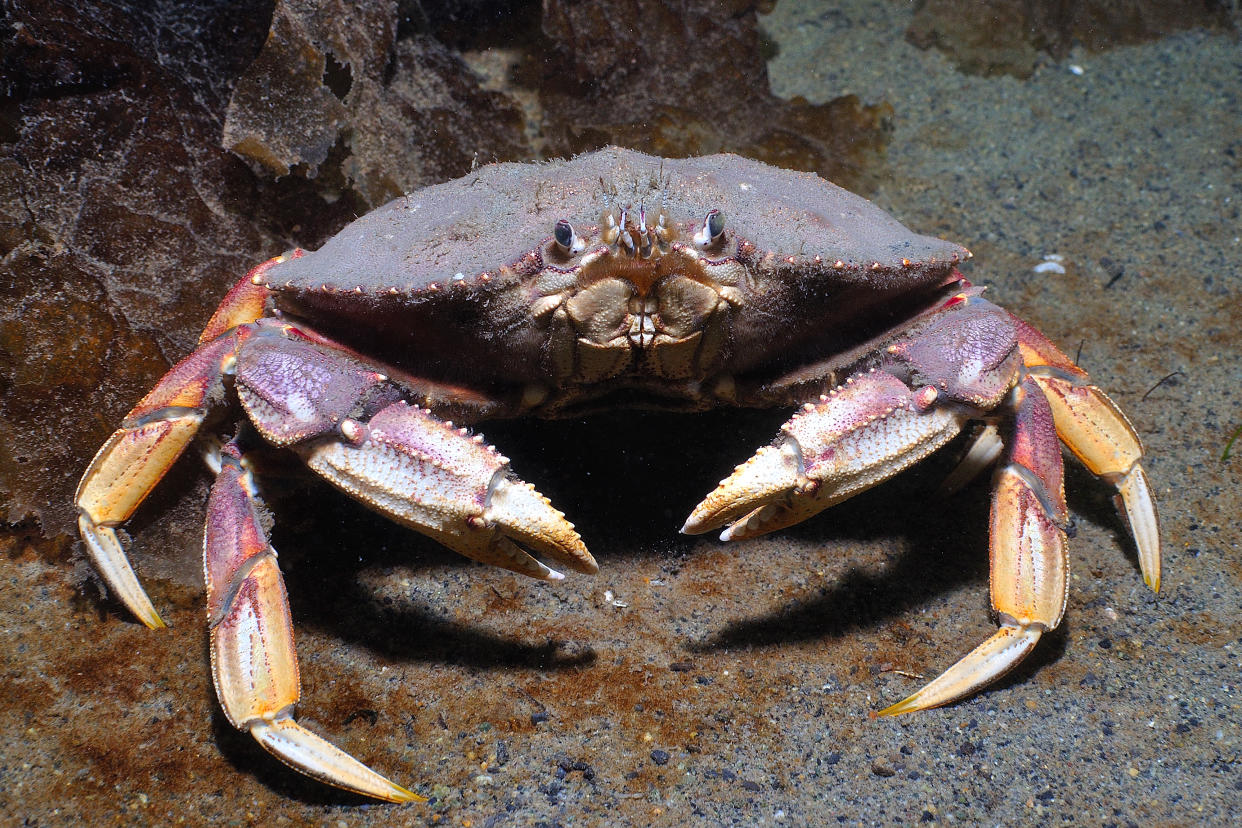Dungeness crabs shells dissolving as a result of climate change: report

A new report finds that Dungeness crab shells are dissolving as a result of ocean acidification, which is a direct consequence of climate change. According to experts, this could have a devastating impact on the fisheries industry in British Columbia, where Dungeness crabs are a huge resource.
The study by the National Oceanic and Atmospheric Administration (NOAA), finds that the crab’s shell is vulnerable to being broken down as a result of ocean acidification, which is the reduction of ph of the water, when it absorbs the carbon dioxide in the atmosphere. While this is a natural process, the burning of fossil fuels has increased the amount of carbon in the atmosphere, and in turn, the water.
Increased carbon in the atmosphere also triggers a series of chemical reactions that ultimately leads to the reduced abundance of carbonate ions, which are important building blocks for species that rely on calcium carbonate for skeletal growth like crabs, clams, mussels, sea urchins and some planktons and corals.
‘Double whammy’
Rachel Chudnow is a science lead for wild capture fisheries with the Ocean Wise sustainable seafood program in Vancouver. She says that there’s been a major increase of acidity globally and it’s expected to continue to spike.
“The Pacific Northwest is a place that’s particularly vulnerable to acidification because of the oceanography of the region, which is home to vast ecosystems,” she tells Yahoo Canada. “The coastal water is nutrient rich and provides food and resources for the entire food chain.”
Those nutrients come from upwelling, which is an oceanographic process where water at depths is brought back to the surface. In that process, the ocean also brings up carbon.
“You’re essentially getting a double whammy of carbon to cause the acidification,” says Chudnow.
In the past, crustaceans have been considered to be less sensitive to ocean acidification, but recent studies, conducted in the lab and the wild, are showing these species do in fact a sensitivity to it. It appears that acidification is also impacting the early life stages of Dungeness crabs, when they are in larvae stages. A recent study found that acidification has a major impact on the shell as well as the condition of important sensory organs, which can have an effect on the crab’s development cycle.
“In the past, it was thought that crabs were fairly resilient but we don’t know the impacts are going to be on adult crabs and therefore, what the consequences might be as a whole,” says Chudnow.
Potential threat to B.C. fishing industry
Dungeness crab is a species that’s iconic to the Pacific Northwest. It has strong sociocultural ties to the region and is incredibly important to the economy.
Some communities in B.C. are economically dependent on this species. Beyond the direct impact on fishers, there’s a domino effect on the supply chain, which includes processing and shipping — job opportunities that stem from Dungeness crab.
First Nations groups have traditionally harvested these species, and under current federal government legislation, have food, social and ceremonial rights to fishing them. They also have access to the province’s commercial fisheries for Dungeness crab. In 2019, there were 29 First Nations licenses that had been designated as communal commercials licenses.
Between the U.S. and Canada, commercial fisheries are harvesting a lot of crab. As of 2017, U.S. fisheries were valued at $220 million USD. British Columbia’s commercial crab fishery accounted for 37 per cent of the wholesale value of the province’s wild shellfish products. Between 2011 and 2017, the commercial crab fleet landed value averaged approximately $43.2 million per year. And that doesn’t include recreational fishing, which is wildly popular in B.C.
“While it’s too early to tell (the impact of ocean acidification on B.C's Dungeness crabs) it’s one of those species that’s a big money maker and it’s something we’ll be following very closely,” says Chudnow.

